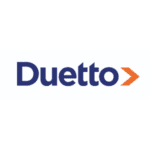If you ever walk into a room filled with hoteliers or folks working within the hotel marketing field, there are a variety of ways to strike a conversation, but most certainly one topic that will get the discussion to truly heat up: the relationship with online travel agencies, better known as OTAs.
It remains unclear if the likes of Expedia, Orbitz, Travelocity, Booking, Hotels.com or Priceline are friends or foe, but they most certainly represent a must component of the online travel distribution as we know it. And I am not even talking about meta-search engines, such as Trivago, Kayak, Hipmunk or even TripAdvisor, which are a different lot. Some folks embrace them wholeheartedly, while others loathe them with a passion. Yup, it’s love-hate relationship, alright!
What’s at stake?
Let’s be honest, this confrontation between hotels and OTAs has been many years in the making. This perception gap was once again revealed in a recent survey, conducted by Ipsos for TripAdvisor earlier this month. While 95% of global travelers said price was the most important factor in booking an accommodation, only 50% of global hoteliers identified that factor as having the biggest impact on traveler bookings. Go figure!
Source: TripAdvisor TripBarometer, April 2014
Travelers seem to enjoy using OTAs as a one-stop-shop where prices are usually ultra-competitive, and user experience is second to none on most devices (desktop, laptop, smartphone, tablet). Some online agencies, such as Hotels.com even offer loyalty programs, where you get a free room for every 10 nights booked with them. So what’s the fuss? Here are the usual complaints from hoteliers:
- Commission levels: Whenever you make a reservation on Booking.com, the hotel pays out a commission of 15-18%, sometimes more. With Expedia, it’s even higher, at 25% or more, depending if you opt-in for preferred display and advertisement. These commission levels are undergoing changes and negotiations as we speak, due to industry pressure from leading hotel chains, but it remains nevertheless the number one issue.
- Restrictive conditions: Hotels, inns, hostels… everybody who signs with OTAs are required to sign complex and details contracts that demand rate parity, rate integrity, and room availability, among key conditions. In other words, a hotel can’t show a lower rate on his own website, nor can he make some rooms available on a site while unavailable on another. Some of these conditions are under fire in Europe, in particular in France, Germany and the UK where it goes against anti-competitive laws.
- Online reputation: If a traveler writes a comment, positive or negative, on TripAdvisor or Yelp, hoteliers can respond publicly. It gives context to the situation. But if you have a bad experience and write up a comment on Booking.com? Hoteliers can respond to you privately, but it won’t show on the site. So users only see traveler reviews, and not the hotel response. Not good for hotels, nor for site users who don’t get the complete picture.
- Loss of direct relationship with clients: The OTAs have developed such brand equity and user loyalty that many tend to book over and over with them. It makes sense when someone is planning a two weeks vacation, to make most reservations on one platform such as Expedia or Booking. But when folks reserve just for one night in a property they are familiar with, some may wonder why bookings are made on the OTA site rather than directly on the hotel website.
In France, hotel associations are grouping together to create a new movement, called Fairbooking. The goal is to educate the population on the merits of booking direct with hoteliers, with upgrades or free breakfast in tow for those who choose to do so. Over 1,000 hotels have joined forces, but is the general public taking notice? This reminds me somewhat of RoomKey, another similar initiative that was started in North America by leading hotel chains. Another well-meaning effort, but it is gaining any traction with the general public if there is no serious advertisement effort to back it up?
The opportunities
Yet, for all the complaining we hear, online travel agencies still contribute positively by bringing in substantial revenues. Here are a few areas of opportunities for those who embrace them:
- The “billboard effect”: According to a Cornell University study, hotels listed on Expedia will benefit from reservations directly to their site, simply as a consequence of being seen on Expedia. Incremental reservations will vary from 8% to 26%, depending on the type of hotel – independent hotels are the ones who seem to benefit most! Bearing in mind the substantial amounts of money OTAs are spending online, this reason alone should be enough to consider playing along. Did you know Priceline (through its subsidiary Booking.com) is the second biggest client of Google AdWords in the world? And they are now investing in traditional mass media too, thus educating the general public of their virtues.
- Copy and paste: I am not suggesting that hotel website ought to copy and paste what is being done on OTA sites, but what’s wrong with inspiring yourself from best practices? Some hotel websites are so outdated, yet they insist on presenting certain types of rooms or other details that don’t matter much to travelers. Most OTA sites and mobile applications are on their 4th or 5th generation, have great UX and showcase seamlessly what travelers want to see without having to click too many times. Hotel sites should watch, learn and replicate what seems to work, rather than ignore the evolution in customer needs and wants online. Check out the image below for some examples!
Notice a few things that put positive “pressure” on the consumer looking at this hotel listing on Booking.com for New York City:
- There are 21 people looking at this hotel. Is this really true? Who knows, who cares… it must be popular, right?
- Latest booking: 10 minutes ago. And it also says there are 5 rooms left. Gee, I must book fast or I may not get this property…
- Usual price if 657$ but I can save almost 110$ if I book now, since it’s “only” 548$. A real bargain (really??), right?
- Free cancellation – PAY LATER. Well, as a consumer, I feel like there is no risk associated with making a reservation. So why not go ahead and book, and I can always cancel later. Most people won’t, though.
- Not sure about this room type or the rate? There are 5 more room types available to look at.
These are a few examples of things hotels could do as well on their own website, just looking at one listing. There are lots more many best practices that could be replicated too.
- Direct relationship: While the booking may have come from a third-party, some hotels embrace this as an opportunity to retain the customer by asking their email upon checking-in, either to become part of the hotel loyalty program, or either to take advantage of a promotion. After I had booked a Montreal hotel through Hotwire, the staff at the reception gave me a 25$ coupon for my next reservation, which had to be made online, on their site. Brilliant!
Finally, most online travel agencies have a cookie-cutter approach and standardised offer on hand. Hotels, on the other hand, can highlight their own distinctive personalities through compelling visual storytelling and a dynamic content marketing strategy: blog posts, social media and newsletters, among other tactics. Thus, there is more potential for collaboration than ruthless competition in this relationship, assuming hoteliers play their cards right, have a recent, mobile-friendly website and a content marketing approach to draw travelers online.
Senior marketing and communications expert & speaker with 18 years expertise in the travel and hospitality industry. Consulting since early 2012, Frederic provides strategic planning, social media & mobile development counseling to small and medium businesses alike. Reach him at frederic@gonzomarketing.biz.


















